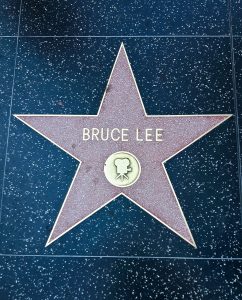It has been more than a decade since Dragon Tiger Gate hit the cinema screens of Hong Kong and China. Released in 2006, Dragon Tiger Gate, also known as Lung Fu Moon, helped breathe new life into the world of martial arts; creating an air of excitement and intrigue about learning and refining martial arts and its ability to help the fight for justice and honor. The film scooped more than HK $12m at the box office and its success led to reports that the cast and crew were in talks to expand the plot with a sequel, although as yet these plans have not come to fruition.
The inclusion of one of Hong Kong’s most celebrated action movie stars, Donnie Yen, was an inspired move on the part of director Wilson Yip. For many years, Yen has been praised for helping to raise the profile of mixed martial arts (MMA) and cementing it in mainstream popular culture in China and further afield. More specifically, Yen has been credited with the popularization of martial art Wing Chun, encouraging the formation of many Wing Chun academies throughout China and elsewhere in the continent. Since the early 2000s, Yen has been one of the most prominent Asian film stars. Everything that he has touched has pretty much turned to gold and Dragon Tiger Gate is no different.
The storyline of the movie is influenced by the popular Hong Kong manhua Oriental Heroes by artist Wong Yuk-long. For those not acquainted with the concept of a manhua, these were traditional Chinese comics designed across China, Hong Kong and Taiwan which were used to portray society and life in the Far East. Oriental Heroes was centered around the concept of young people growing up on publicly-funded housing estates in Hong Kong, fighting crime and surviving gang warfare. Although the protagonists of many of these stories were forced to exhibit antisocial behaviour, they regularly did so in the name of social justice and equality.
In the titular film, Dragon Tiger Gate is a martial arts academy designed to teach the skills of martial arts in order to uphold society and thwart the triads from attempting to run the town. The academy was teeming with youngsters, many of which had been orphaned by the triads, and the film follows closely the fortunes of three young fighters who are in a constant state of flux with their personal and literal demons. Some of the fast-paced, frenetic fight scenes are a joy to watch and choreographed to the nth degree. The impressive athleticism shown by the likes of Donnie Yen and Nicholas Tse – of The Bullet Vanishes fame – is one of the main reasons why Dragon Tiger Gate is so revered by the MMA community. The tale proves that martial arts is not about who can injure their opponent more, it’s about humility and respect.
For film fans who take Dragon Tiger Gate at face value, you will quickly appreciate it as a vibrant, kinetic action movie that you can rarely take your eyes from. Excuse the fact that the film’s producers went a little over the top when it came to CGI effects in the latter part of the movie, this is high-octane martial arts at its very best.
The Bruce Lee Connection
Donnie Yen has made a real impact on popular culture in China specifically, but there is no other martial arts professional that has had a global impact quite like Bruce Lee. His death, 42 years ago, left a crater in the hole of martial arts fanatics around the world. The significance of his hit movie Enter the Dragon, should never be forgotten. Before this movie, there had obviously been martial arts movies released, but none managed to resonate with the world quite like Enter the Dragon. It deservedly catapulted Bruce Lee into the eyes of the West, but despite his larger-than-life personality, the stigma that remained in Hollywood post-Vietnam meant that no producer had the vision to cast Lee in a starring role. That fact was exacerbated and made even more tragic by his sudden death at the tender age of just 32.
Nevertheless, the Bruce Lee phenomenon has rightly left an indelible mark on popular culture as we know it. Martial arts have become more of a lifestyle than a fad, weaving its way into our everyday lives in so many ways. Let’s look at some of the most common martial arts influences on pop culture worldwide today.
Cross-training
Martial arts films have helped inspire a new age of fitness regimes to blossom, namely cross-training. Cross-trainers, like martial artists, believe that general fitness is a prerequisite for good self defense. One cannot depend on technique or luck when defending themselves on the street; having a base level of fitness provides the foundation to survive an attack. Cross-training approaches are becoming increasingly popular in military environments and in professional sport. Cross-training is an art form too that has transcended the ages. Look back to the hit film 300 and you’ll notice the chiselled stomachs of the Spartans who relied solely on cross-training to stay in shape.
Games go Martial
Those who enjoy martial arts movies have increasingly sought to hone their skills virtually on their favourite beat’em up video games. Tekken 7 is the ninth instalment in a long line of fighting games developed by Bandai Namco Entertainment. By October of 2017, Tekken 7 had sold more than two million copies globally. The game’s focus on one-on-one battles is inspired by that of martial arts, using smart finishing moves to see off opponents. It is also said that the first Mortal Kombat video game was designed based on martial arts actor, Jean Claude Van Damme, with protagonist Johnny Cage arguably modelled on the Belgian. Meanwhile, Dragon Tiger Gate has also had a card game named after the 2006 hit movie, with the game first coming to prominence in Cambodia. The game resembles Casino War and baccarat and asks punters to bet on the winning hand rather than try to get their own hand to win.
A New Wave of Martial Arts Icons
Jean Claude Van Damme has often spoken in glowing terms of Bruce Lee’s influence on his own personal acting style. At the time of martial arts’ explosion on the cinema screen, Van Damme admitted he was not in the necessary physical shape to achieve such greatness. He spoke of being awe-struck by Enter the Dragon with Bruce Lee’s appeal the new benchmark for Van Damme to aspire to in his own acting career. Van Damme became an icon in his own right for his karate, kickboxing, Muay Thai and taekwondo skills and some 58 movies and countless television appearances later – including his latest in a Coors Light commercial – he remains a huge influence.
That’s just three key influences of martial arts movies before we’ve even scratched the surface on the explosion of UFC MMA, its influence on band culture in the music industry and so much more. Martial arts as a concept is here to stay.




